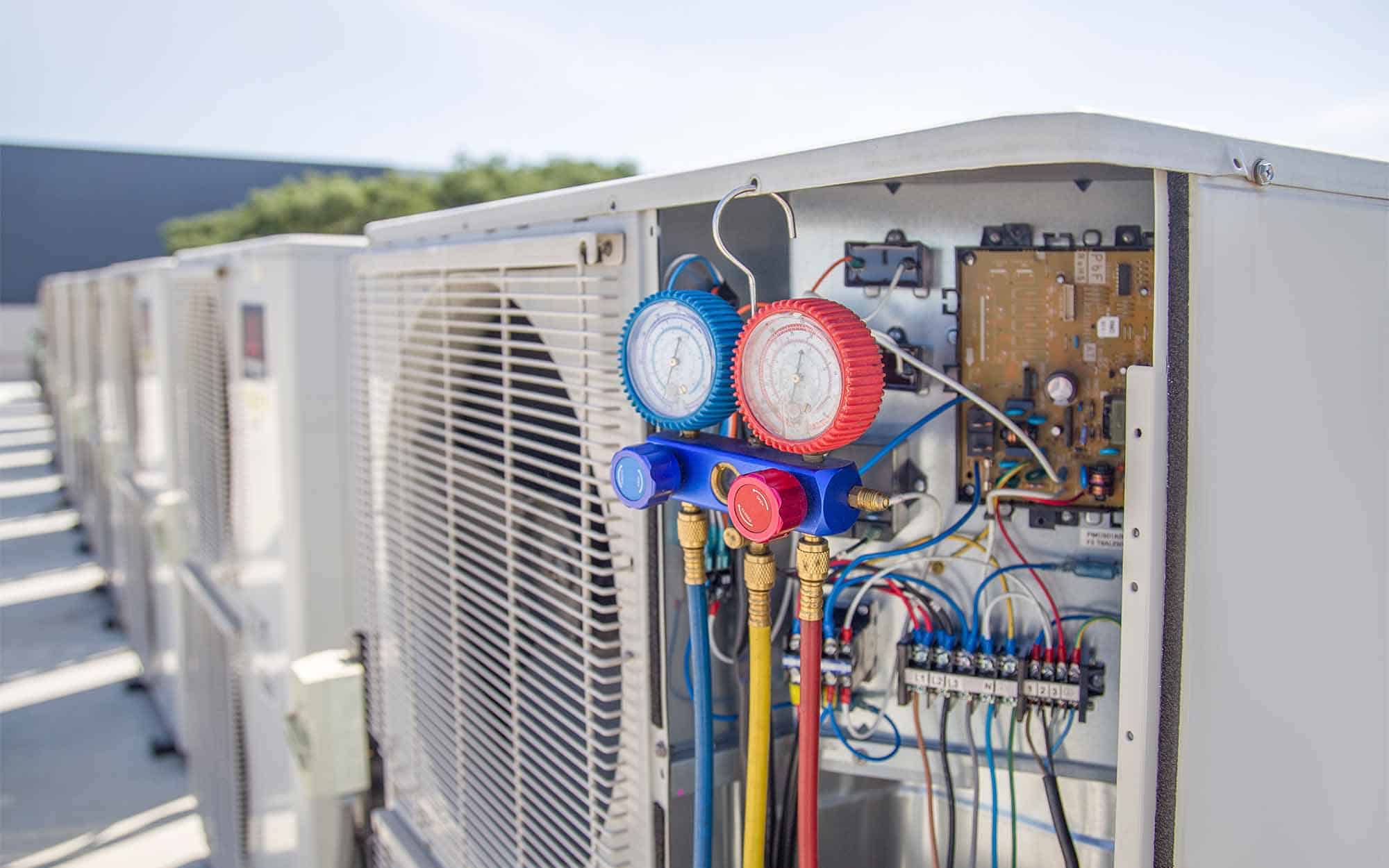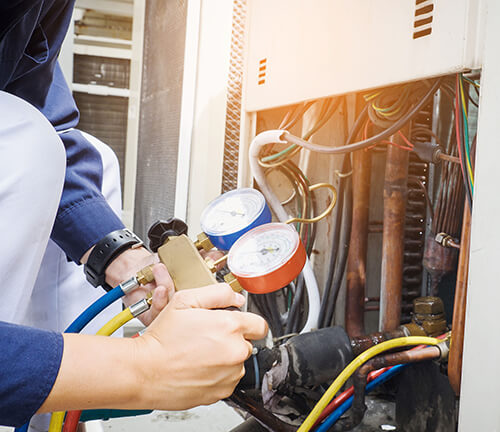Expert Tips for Successful Air Conditioning Installation Brownwood TX
Expert Tips for Successful Air Conditioning Installation Brownwood TX
Blog Article
The Importance of HVAC Setup: Key Considerations for a Comfy Indoor Setting
The installment of a HVAC system is a vital element in attaining an energy-efficient and comfy interior atmosphere. The procedure entails numerous nuanced factors to consider that go beyond simply selecting an unit off the rack. Aspects such as the suitability of the system for particular building needs, correct sizing to prevent ineffectiveness, and the experience of contractors for a top quality installment play critical roles. The fostering of innovative innovations can considerably enhance system efficiency. Yet, comprehending these complexities is merely the start of making sure optimal interior convenience. What are the critical aspects that dictate effective a/c execution?
Picking the Right System

When choosing a HVAC system, it is crucial to examine the ability needed to efficiently heat or cool down the room without overworking the system, which can result in increased wear and functional expenses. Consulting with an expert HVAC specialist can supply useful insights right into choosing a system that aligns with both the architectural style and the anticipated use patterns of the building.
Furthermore, considering the combination of clever modern technology can enhance system management and surveillance, providing greater control and possible expense financial savings. By carefully examining these factors, one can ensure the option of a cooling and heating system that not only meets prompt requirements yet additionally contributes to long-term operational sustainability and resident comfort.
Comprehending Energy Efficiency
Comprehending energy effectiveness is essential when thinking about an A/c installation, as it directly influences both the environmental footprint and the operational costs of the system. The performance of a HVAC system is generally shown by ratings such as SEER (Seasonal Energy Performance Proportion) for air conditioners or AFUE (Annual Gas Utilization Performance) for furnaces.

Buying an energy-efficient heating and cooling system not just converts to cost savings but likewise adds positively to ecological preservation by reducing greenhouse gas exhausts. Additionally, several territories use incentives or discounts for the setup of high-efficiency systems, further improving their economic allure.
When reviewing energy effectiveness, think about advanced functions such as variable rate electric motors, wise thermostats, and zoning capabilities. These technologies improve the system's capability to get used to varying need, consequently maximizing power usage. It is important to talk to HVAC specialists who can supply insights into the best choices tailored to particular environment problems and usage patterns, guaranteeing optimal performance and comfort.
Relevance of Appropriate Sizing

Alternatively, a small a/c system will certainly have a hard time to get to the preferred temperature, specifically throughout extreme weather. This can result in continual procedure, leading to greater power expenses and prospective getting too hot of system components. In addition, poor sizing can cause inconsistent temperature level distribution, creating specific areas of a structure to be as well cozy or too awesome.
To attain the correct sizing, an extensive load computation is necessary. This entails analyzing various variables such as the building's square video footage, insulation levels, home window types, and regional climate conditions. By properly determining the heating and cooling demands of a room, heating and cooling experts can advise systems that make sure reliable operation, decreased energy usage, and enhanced interior comfort.

Guaranteeing Quality Installation
A seamless HVAC installment is the foundation of a system's longevity and performance. This specialist ought to have extensive expertise of varied systems and be proficient at analyzing the certain demands of the building.
Appropriate installment exceeds mere placement of tools. It involves exact calibration to make certain optimum airflow, effective power consumption, and uniform temperature level circulation. This includes exact ductwork installation, guaranteeing links are leak-free and protected, which is essential for maintaining system effectiveness and indoor air quality.
Moreover, the execution of advanced diagnostic tools during setup can detect potential problems early, stopping pricey repairs and extending the lifespan of the system. The service provider needs to additionally ensure that all components are compatible and that the system abides by regional structure codes and laws.
Regular Maintenance Practices
When the structure for a high-performing cooling and heating system is established with top quality installation, the emphasis must shift to routine maintenance techniques to guarantee continued performance and integrity. Routine upkeep not only extends the life expectancy of the system yet additionally boosts interior air quality, decreases power consumption, and protects against expensive repair services. Necessary upkeep tasks include routinely changing air filters, cleaning up evaporator and condenser coils, and examining the system for blockages or leaks.
Air filters should be replaced or cleaned each to 3 months, depending upon use and environmental variables. This simple job can significantly boost air flow you could try this out and system effectiveness (Electrician in Brownwood TX). Cleansing the evaporator and condenser coils stops dust build-up, which can impede warmth absorption and cooling capability. In addition, professional technicians ought to evaluate the system annually, looking for cooling agent degrees, electric connections, and overall system performance.
Focus to ductwork is also crucial; sealing and cleaning up ducts regularly avoids air loss and contamination. Carrying out an upkeep routine makes sure that small concerns are attended to before they intensify, protecting the system's operational integrity. By adhering to these maintenance practices, homeowners can maximize their cooling and heating system's capability and keep a comfy indoor atmosphere year-round.
Conclusion
By picking an appropriate system customized to particular building requirements, recognizing energy effectiveness, and guaranteeing appropriate sizing, ineffectiveness can be minimized. The involvement of knowledgeable service providers guarantees quality installation, while the assimilation of advanced innovations improves system efficiency and monitoring.
Numerous kinds of Cooling and heating systems are offered, including split systems, hybrid systems, duct-free systems, and packaged heating and air systems, each with distinctive Home Page benefits and constraints.
Understanding energy effectiveness is essential when thinking about an A/c installment, as it straight influences both the environmental impact and the functional expenses of the system. The efficiency of a Cooling and heating system is usually suggested by scores such as SEER (Seasonal Power Effectiveness Proportion) for air conditioners or AFUE (Annual Fuel Usage Performance) for heating systems (Heating Contractor in Brownwood TX).As soon as this website the structure for a high-performing HVAC system is established via quality setup, the emphasis ought to shift to routine maintenance practices to guarantee continued performance and dependability. In addition, specialist specialists ought to inspect the system annually, examining for cooling agent levels, electric links, and general system performance
Report this page